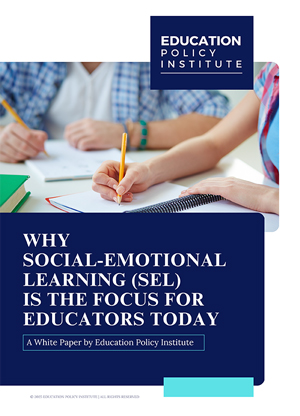Career success means different things to different people. A vocation that makes six figures, that provides an opportunity for growth, that is resilient in turbulent times or one that gives a sense of purpose.
Building a career is becoming fluid and reinvention is outlining success more than a traditional climb to the top approach. According to Deloitte, career development today is like a ‘lattice’, derived from literal lattices found in the gardens that allow movement in several directions.
It entails fashioning career growth along varied paths to better adapt to change, much like a chameleon – leveraging a collection of roles, expertise, experiences, and industries. We take a look at a few factors leading this shift.
4 Factors Influencing Career Decision Making
It is important to occasionally step back and reflect on how one’s career trajectory is going and growing. These are the prime forces auguring a change in people’s perceptions, habits, and attitudes towards careers, maybe also yours.
-
New advancements: Race to stay relevant
Joining a job or a career for life is no longer feasible. Thanks to automation and technological advances, the world is facing a ‘reskilling emergency’. According to the World Economic Forum (WEF), in the next two years, by 2025, over 42 percent of the core skills needed to perform existing jobs will change.
As the lines are drawn and redrawn, several prognoses about the future of work mandate a continual focus on career growth and development to remain relevant.
-
Multiple careers in one lifetime: Self-actualization
While golden advice in the past, one career for life also seems undesirable, quaint, and even redundant (think Gen Z) to many. For average career switches in a lifetime, seven is a widely cited number among job researchers.
Facebook COO Sheryl Sandberg, herself having trained as an economist and eventually joining Silicon Valley with no tech background, calls such career navigation a jungle gym scrambling instead of climbing a ladder. “I wouldn’t want it any other way. It has taught me resilience and self-sufficiency.”
-
Working past retirement: Second innings
Some cannot afford to retire for they are supporting families, paying off debt, and bolstering finances and others find post-sixties an opportunity to reinvent, pursue new interests, and teach others what they have learned. Be that as it may, the number of people transitioning toward retirement has reduced.
Extended career timelines in a technologically advanced world have made it normal for people to jump ships in their mid-40s after having climbed the ladder for decades, and expect promising growth potential.
-
Generational differences: Flexibility over stability
Millennials and a whole generation who never used CD Walkman are joining the workforce and eschewing conventional 9 to 5 jobs. Gen Y and Z aren’t as loyal to a single employer as were previous generations. They are choosing job satisfaction and dream roles over compensation and flexibility to work for themselves over job stability.
Making Career Adjustments: From A Fresh Lens
Irrespective of the professional level, adjusting career sail under the forces defining work and workplaces can benefit all – whether you are a trainee, a mid-career manager, a soon-to-be executive, or a seasoned professional.
We suggest development in 3 areas to broaden your offering and career appeal.
-
Certification for continuing development
Degrees hold less sway, and knowledge & skills more as time passes. It is effective and arguably shielding at any stage of the career, to take stock and determine where you need to improve and update.
Getting certified is a cost-effective and efficient way to fill gaps in your knowledge, possess time-relevant skill sets, and get validation on competencies in new domains. Since time-bound and require periodic renewal, it ensures continuing education and compatibility with the latest industry standards.
Check if your employer can underwrite the fees for getting certified. Many companies now realize the benefits of reskilling and retraining employees. Some wise suggest occasionally putting yourself out in the market and getting a little sense of your strengths and worth.
When upgrading, opt for roles and skillsets of the future. WEF forecasts most job growth will come from 7 professional areas.
-
Jumping in to gain experience
Clients value people who can take responsibility, navigate difficulties, and are positive to have around. If you are planning to juggle careers or enter a new one, take a dive into real-world tasks along with your training and certification. The world may have changed since you last scrounged for a job. Experienced as one is, it’s important to be able to sell yourself and prove that you can achieve things. Learning by doing is one of the best methods of launching new careers.
-
Side hustle in new domains
Due to the ever-changing technological landscape and the world of work, there is always a niggling worry: what if my job vanishes? A side hustle can hedge your options and give you a back-up. It is a way to experiment with the subjects you are interested in via side gigs and develop your skill set. Start a business, or experiment with a sideline service or two. Eventually, it may turn out to be the safest option as a mainstream career.
To Summarize
When you let your career run on autopilot, you risk falling into the daily grind and losing a long-term perspective of what work means to you. Aim to be proactive than reactive in the face of change. Don’t let your skills go stale and your aptitude fades. Reinvent by taking a more adaptive approach to career development and success.
Latest
Trends blogs
- Mid-Career Education in a Changing Labor Market
- The Next Phase of STEM Education: The Role of Artificial Intelligence in Classroom Curricula
- Education Technology in 2026: Trends Driving the Next Wave of Learning
- Aligning Education with Employability: The Rise of Skill-Centered Learning
Focus blogs
- Research-Driven Education: Strengthening Strategies, Policies, and Classroom Practice
- Professional Certifications for Career Growth: What Students and Young Professionals Need to Know
- Building a High-Impact Center of Excellence: What You Need to Know
- Beyond Graduation: The Importance of Lifelong Learning in Higher Education





